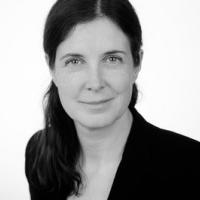The Climate Conference in Paris – and Then What?
- Presentation
- Date
-
- Location
- Berlin, Germany
- Panel discussion
-
Prof.Dr. Ottmar Edenhofer (MCC)Hildegard Müller (BDEW)Franziska Erdle (WirtschaftsVereinigung Metalle)Christoph Bals (Germanwatch)
Prof. Dr. Ottmar Edenhofer (MCC) and Hildegard Müller (BDEW) extended an invitation for 15 October 2015 to discuss the topic "The Climate Conference in Paris – and then?" Franziska Erdle (WirtschaftsVereinigung Metalle), Dr. Camilla Bausch (Ecologic Institute) and Christoph Bals (Germanwatch) provided commentary to the introductory talks of Edenhofer and Müller.
The coal renaissance became the subject of controversial debate. Opinions were split, in particular regarding the assessment of whether the coal renaissance is actually current or whether due to more recent developments in the last three years dynamics have changed to the benefit of the expansion of renewable energies. Nevertheless, participants agreed that the use of coal remains one of the most significant challenges to successful climate protection. The criticism was also largely shared that the European emissions trading system is not currently establishing the adequate signals for a transformation towards a climate-friendly economy.
Edenhofer criticised that the Paris negations will not result in an international agreement with binding national targets (similar to the Kyoto Protocol). However Bals and Bausch underlined that current political dynamics would not allow for such an outcome, regardless of the theoretical meaningfulness of an approach of this nature. The expectations for Paris should be determined in light of the given possibilities.
Bausch emphasized that despite the weaknesses in the particulars, the trend is progressing in the right direction when looking at the current number of intended nationally determined contributions (INDCs). This reflects and substantiates the universalization of climate protection responsibility – an ambition reflected for a while now in UNFCCC decision language. As, however, the pace and ambition for climate mitigation efforts are not yet sufficient and the chosen bottom-up approach brings with it lack of clarity and uniformity, it is essential to create transparency and to establish a regime ensuring coherent monitoring, reporting and review. Overall, the outcomes of Paris could provide a step in the right direction, but will certainly not produce the solution to the climate issue.
In view of the scope of the required emissions reductions, Edenhofer underlined the necessity of a global CO2 price. Erdle indicated openness to this approach, provided it exist on an international level so as to create a level playing field for all businesses. Bausch, however, expressed skepticism about the political feasibility of a global CO2 price in the short- or mid-term. She therefore referred to the importance of reducing environmentally harmful subsidies as one important measure.
Moreover, Edenhofer emphasized the projected need for negative emissions in the future. These negative emissions should be achieved through afforestation and carbon capture and storage (CCS). Bals, on the other hand, questioned the necessity of using CCS technology.
Müller stressed the role of the European Union as a leader in climate protection and the expansion of renewable energies. She underlined that issues of climate protection and security of supply need to be linked – an issue also relevant in the German context. All in all, she underscored the importance of the public discourse regarding transformation pathways.



